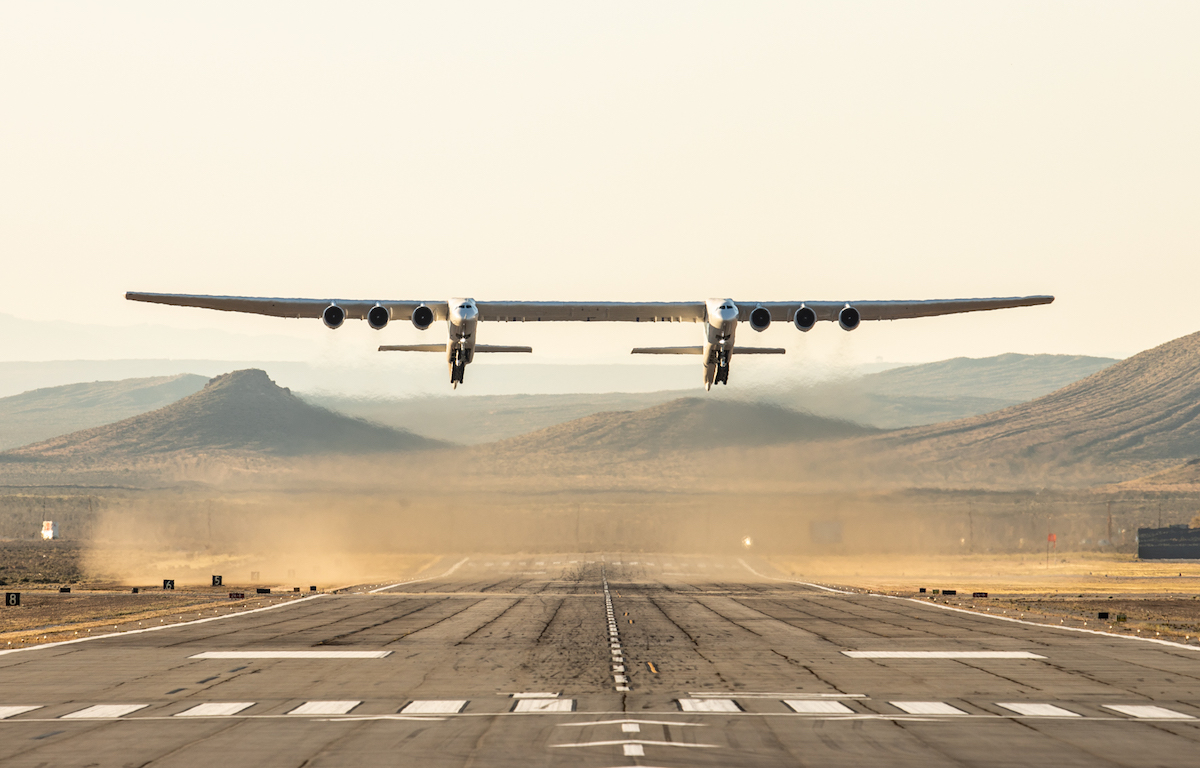
Stratolaunch, the world’s largest airplane, is up for sale. All it’ll cost you is $400 million dollars.
Vulcan, a holding company that belonged to late Microsoft co-founder Paul Allen, is looking to sell off Stratolaunch for the hefty sum, according to anonymous sources familiar with the matter who spoke to CNBC.
With six engines, 28 wheels, and a 385-foot wingspan (that’s more than the length of a football field), the plane took flight just once, back in April. It flew for just over 2 hours after taking off from the Mojave Air and Space Port north of Los Angeles.
The 500,000-pound plane was a dream of Allen’s, who died in 2018 at the age of 65 and never got to see it fly. He founded Stratolaunch Systems in 2011 with the goal of creating a mobile launch platform that could be used to provide convenient access to space. The Stratolaunch’s goal was to carry vehicles high into the atmosphere (to an altitude of 35,000 feet) and then release them to fly even higher.
For $400 million, the buyer won’t just get an airplane. They’ll also be buying the intellectual property and the facilities (including, presumably a massive hangar that houses it), according to MSNBC.
We reached out to Stratolaunch, which did not deny reports that the airplane was up for sale.
“Stratolaunch remains operational,” spokesperson Cecilya Moreno told Digital Trends. “We will provide an update when there is news to share.”
What’s not clear is exactly who would shell out the $400 million for the plane. The most obvious buyer would be another company looking to push the limits of commercial space travel, like Elon Musk’s SpaceX or Jeff Bezo’s Blue Origin. Neither company immediately responded to our requests for comment.
According to MSNBC, Richard Branson, owner of Virgin Galactic, the SpaceShip Company, and Virgin Orbit, is interested in buying the Stratolaunch — for $1.
If no one buys the airplane, it will be a sad end to Allen’s dream of more affordable access to space. In a 2016 LinkedIn post, Allen wrote that he was determined to improve accessibility to low-earth orbit in the hope that it would benefit all humankind.
“As always, space remains an unforgiving frontier, and the skies overhead will surely present obstacles and setbacks that must be overcome,” he wrote. “But hard challenges demand fresh approaches, and I’m optimistic that Stratolaunch will yield transformative benefits – not only for scientists and space entrepreneurs, but for all of us.”



